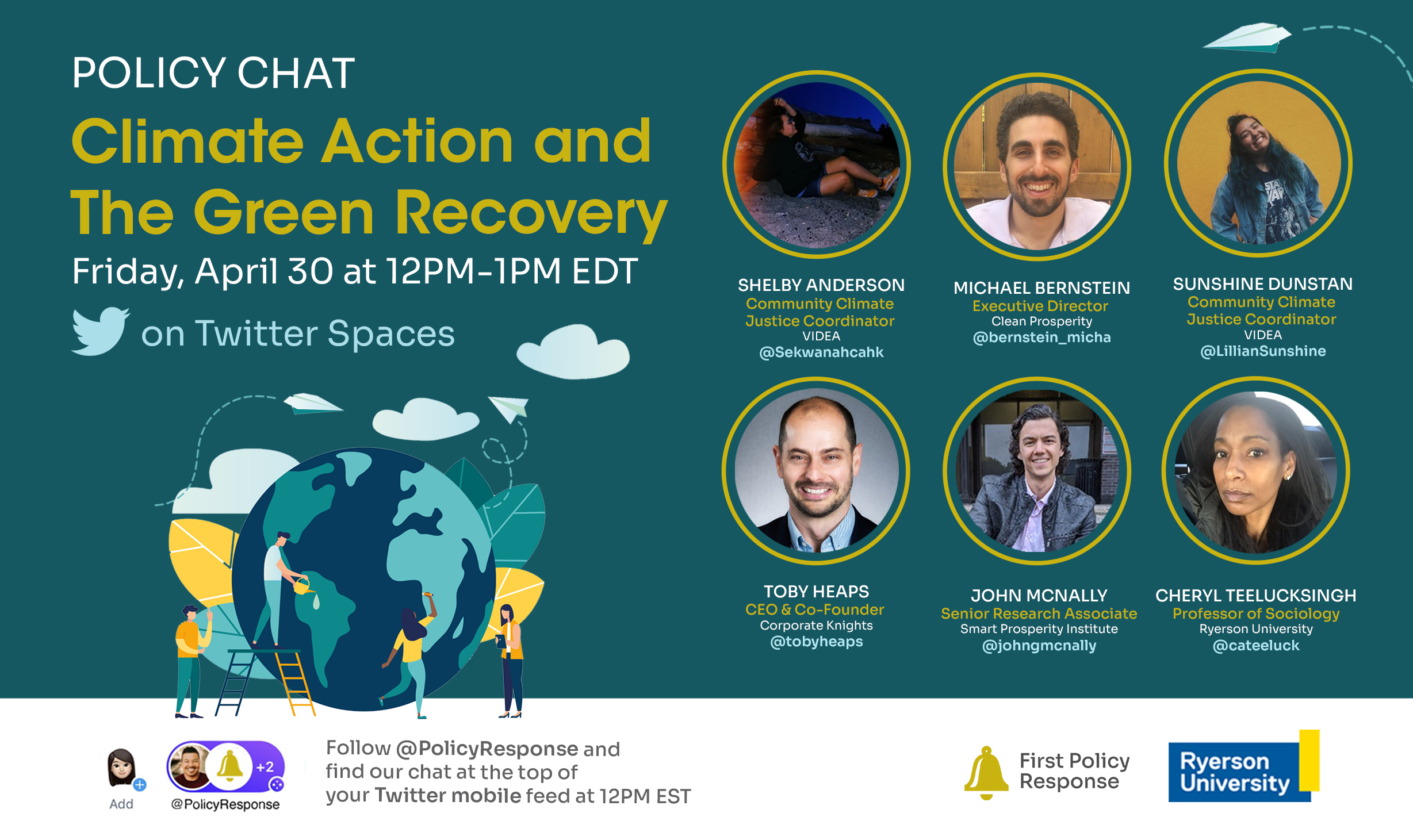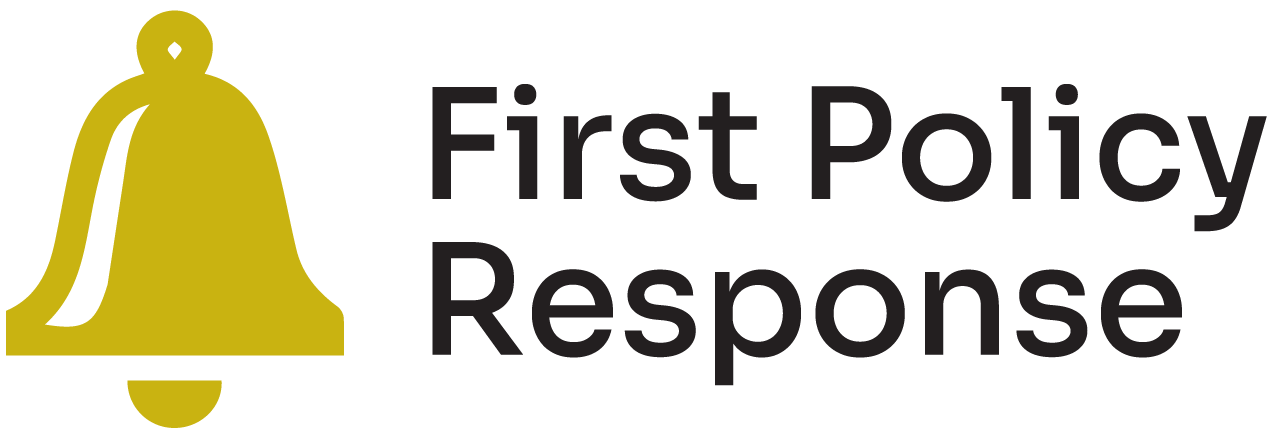
As Canada confronts the effects of global warming, the federal government proposed $17 billion to fight climate change in its 2021 budget announcement on April 19. Shortly afterwards, the government upped its emissions reduction target to reduce greenhouse gas emissions by 40 to 45 per cent below 2005 levels by 2030. That’s up from the previous target of 30 per cent under the Paris Agreement.
On April 30, First Policy Response convened six policy experts on Twitter Spaces to discuss what these developments mean for Canada’s green recovery from the COVID-19 pandemic. Panellists reflected a range of views on the federal budget’s climate commitments. Michael Bernstein, executive director of Clean Prosperity, acknowledged the budget as a solid first step in taking climate action. At the same time, he stressed the need for good policy to meet these goals: “What ultimately matters is not the [emissions] targets for one year — even though those can be helpful signposts — but the cumulative amount of emissions that we’re going to put into the atmosphere from now until we stop emitting.”
John McNally, a senior research associate at Smart Prosperity Institute, agreed that the new emissions targets are good in principle but that some limitations, such as a lack of a skilled workforce and affordable housing, are likely to come into play: “Dialling up climate action without recognizing the current bottlenecks we’re facing is not going to solve these problems.”
Some panellists noted the budget could have been better aligned with the goals of social justice. Cheryl Teelucksingh, a professor of sociology at Ryerson University, commended U.S. President Joe Biden for his proactive use of the language of climate justice, which she says could have been more pronounced in Canada’s commitments. Sunshine Dunstan, a community climate justice coordinator at VIDEA, added that the budget was unclear on where Canada stands on climate action within Indigenous communities. Shelby Anderson, who works with Dunstan at VIDEA, echoed that sentiment, stressing the need for more explicitly intersectional climate policy that addresses the immediate needs of Indigenous communities, such as the lack of access to clean water.
The panellists agreed that Canada’s green transition will have to centre the labour force, especially in terms of labour gaps in the green economy. Toby Heaps, CEO and co-founder of Corporate Knights, pointed out Denmark’s training and reskilling program as a useful example for Canada. According to Heaps, but supports their living costs: “You can’t tell someone you’re going to cover their apprenticeship costs without covering their housing and other costs associated.” Dunstan added that food, utility and rent costs are critical for allowing people to enroll in retraining programs in the first place.
The federal budget mostly focused on the role of big industrial players in Canada’s green recovery: for instance, it dedicates an extra $5 billion over seven years to the Net Zero Accelerator, a fund that helps heavy-emitting sectors invest in clean technology, and halves the federal corporate tax rate for manufacturers of zero-emissions technology. Bernstein said this emphasis was appropriate, citing the importance of encouraging private dollars in green technology: “Most of our changes require significant upfront investment so it’s important for the government to devote lots of their budget to that transformation.” Teelucksingh said the budget’s supports would open up more opportunities for the private sector to drive innovation in clean technology. However, Heaps said the budget could have made more space for small-medium enterprises and farmers in rural areas to be part of the solution.
When it comes to the outlook for Canada’s green recovery, the panellists offered stark reminders of how much work there is to be done. As Anderson said, “It’s interesting to talk about building back up the workforce when we are still tackling the issues like a lack of work and clean water in Indigenous communities.” Dunstan and Anderson highlighted how Indigenous leadership could play an important role in shaping a more robust climate-action agenda. Teelucksingh agreed that other marginalized voices should be more foregrounded in Canada’s climate conversation as we prepare for the next UN climate change conference in Glasgow this November.
Many panellists reiterated that a comprehensive climate agenda must look beyond emissions targets. Specifically, Teelucksingh noted that people have to be at the centre of environmental policy. For example, she said, small business owners who have struggled throughout the pandemic should be entitled to some sort of subsidy — potentially from the oil and gas sector: “I think that would be a way to capture the gendered and racialized populations that are heavily represented in small businesses, too.” Finally, Heaps reiterated the importance of an increase in retraining expenditure and private sector investments. He mentioned this could be done through the regulation of banks and insurance companies, which can trickle down into a slew of measures benefitting SMEs, such as loans for retrofitting. Overall, he said, there is great opportunity within the budget to get the money flowing into clean and green technology.
Event Date
Friday, April 30th, 2021
1-2PM
Event Hosts



